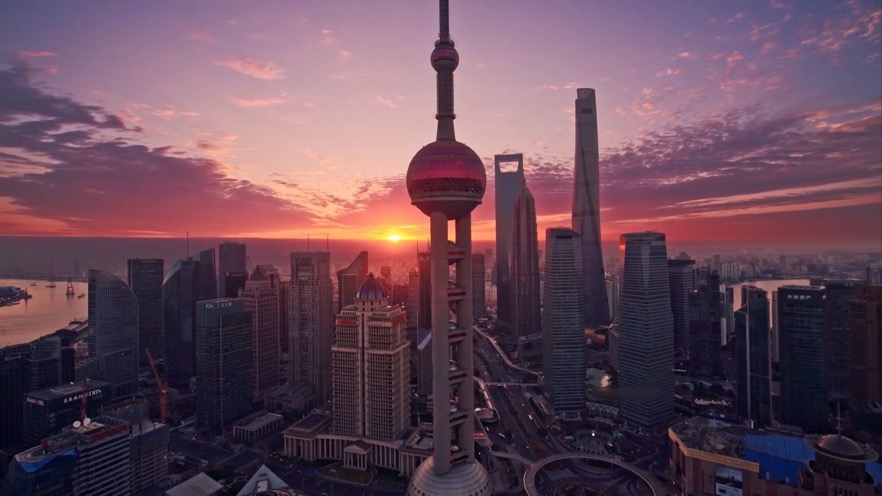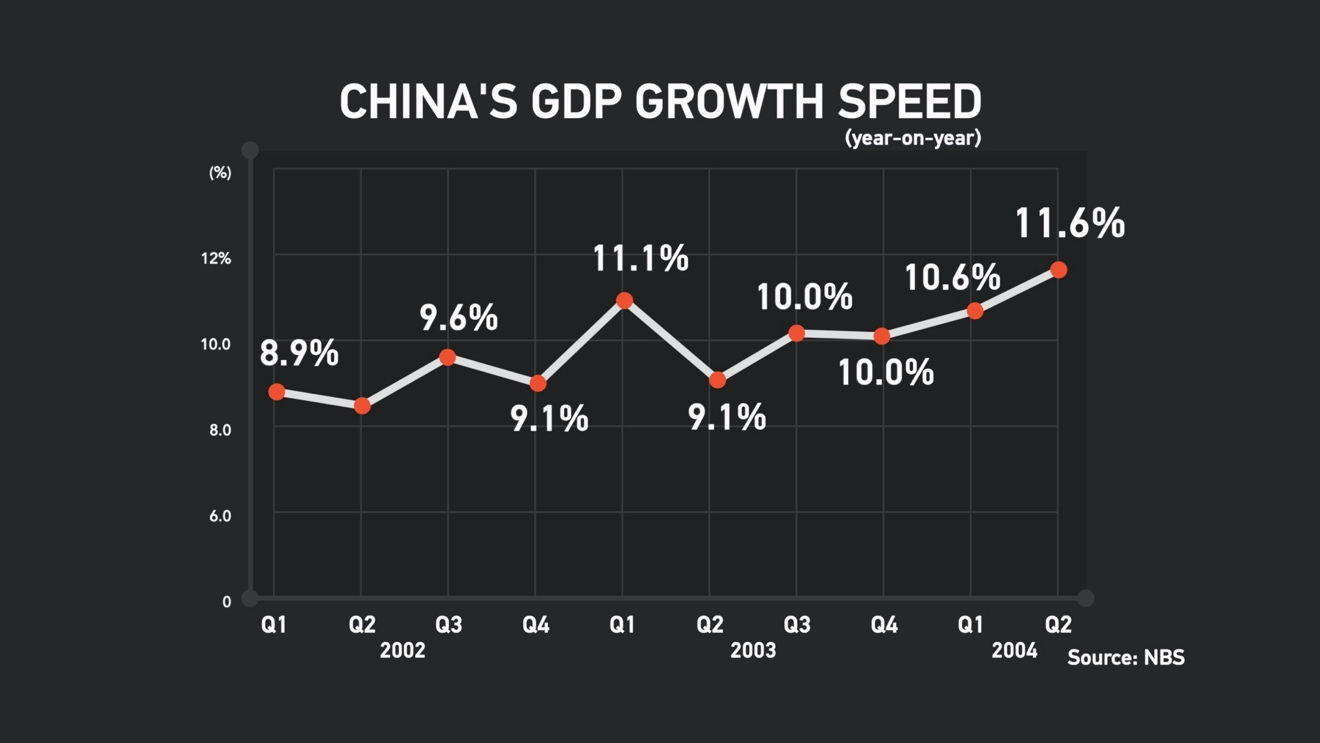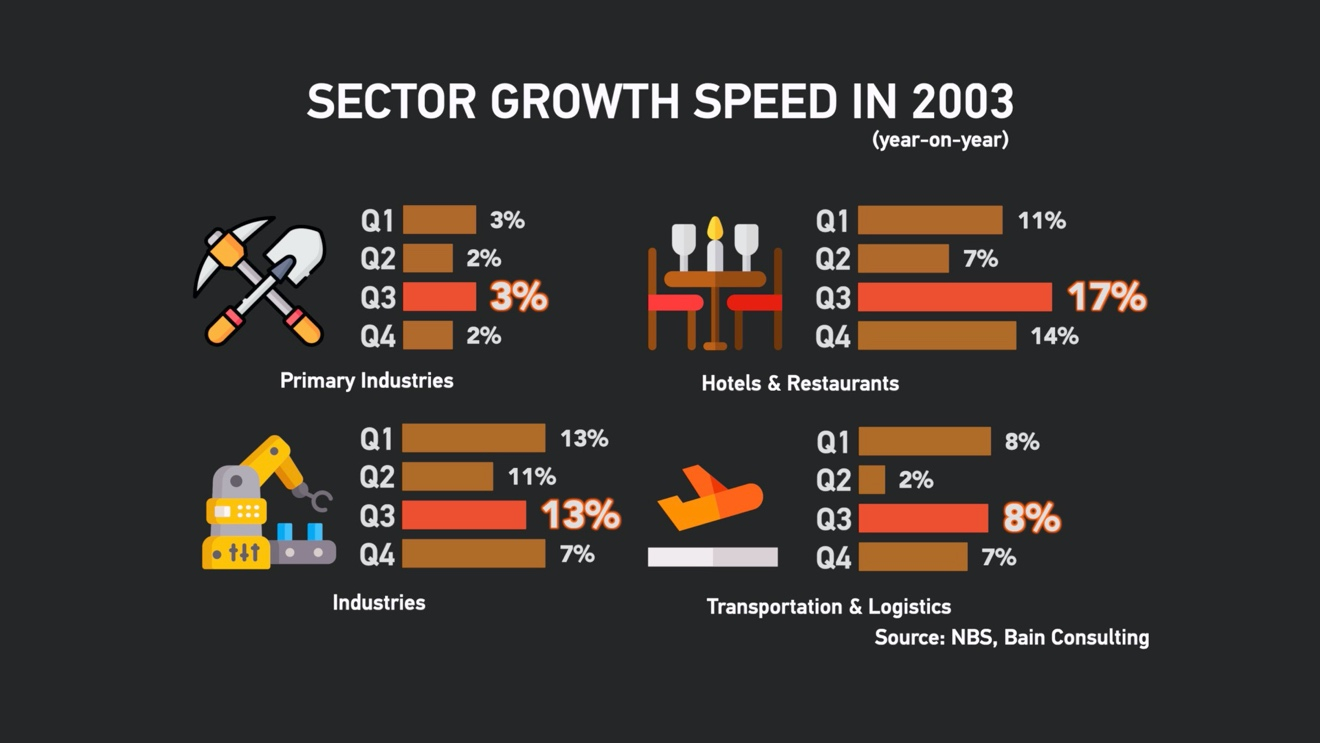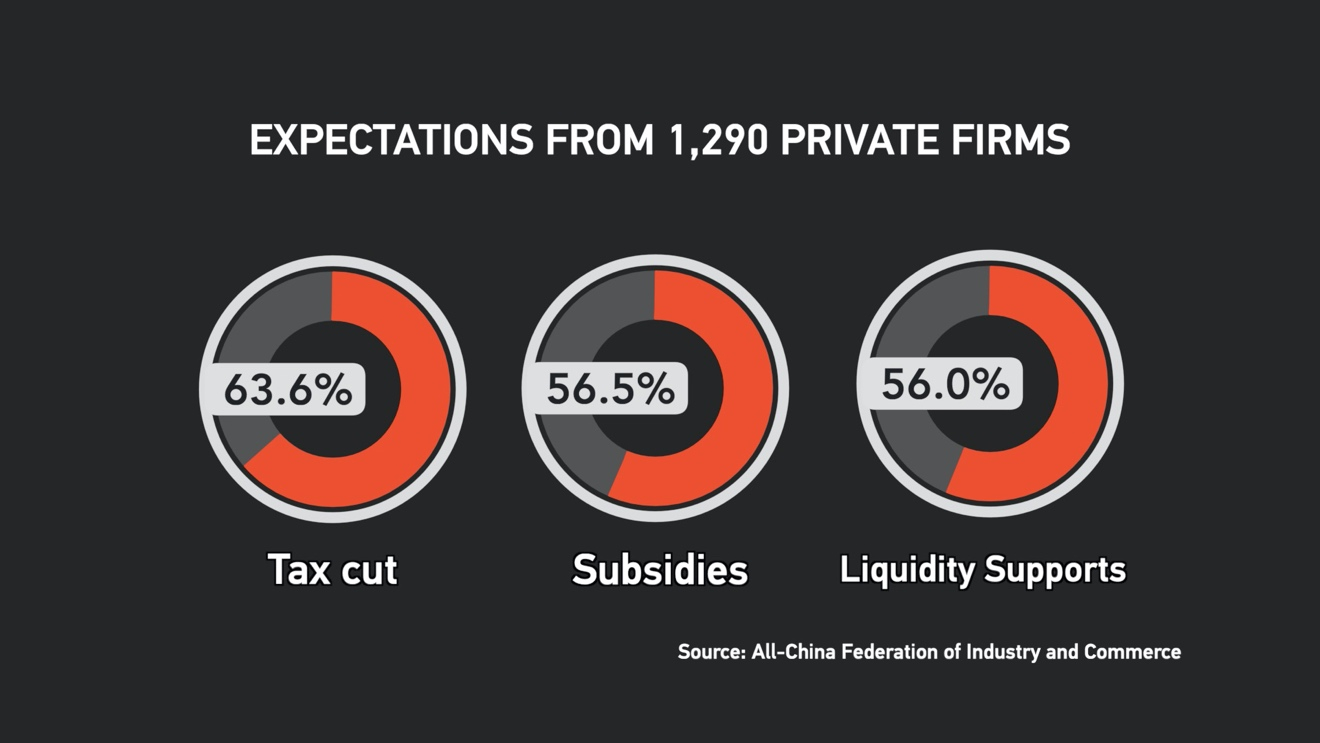04:37

Amid growing concerns about the impact of COVID-19 on the Chinese economy, it's worth bearing in mind the lessons from the SARS outbreak 17 years ago. In 2003, national growth dipped from 11.1 percent to 9.1 percent in the second quarter, but quickly rebounded in the third quarter.

Graphics by Yang Chengxi. /CGTN
Graphics by Yang Chengxi. /CGTN
Recovery across various industries was robust in the aftermath and it did not spill over to the following year.
But today in 2020, many Chinese industries have since been vastly transformed. The impact this time round is likely to hit different sectors differently and might take on very different forms.

Graphics by Yang Chengxi. /CGTN (Icons made by Freepik from www.flaticon.com)
Graphics by Yang Chengxi. /CGTN (Icons made by Freepik from www.flaticon.com)
Taking export manufacturing as an example. In 2003, China was not only a new WTO member but also a new player to the global division of labor. But today, it is an integral part of the global supply chain. According to a survey by consulting firm McKinsey across 186 economies, China has emerged as the largest source of imports for 65 of them. In addition, China's industrial supply chain has also become more sophisticated. The production for many items is spread out among a large number of suppliers.
By the end of last week, businesses in major cities have gradually resumed operations after a prolonged Chinese New Year break.
But even so, there are challenges. For instance, if certain key suppliers have difficulties resuming work, the smooth operation of the entire chain could be adversely affected.
Consumption has also been seriously hit. However, there are reasons to be hopeful. A sharp decline in consumption at the height of the 2003 SARS outbreak was replaced by a spike in 2004.

Graphics by Yang Chengxi. /CGTN
Graphics by Yang Chengxi. /CGTN
Similar scenario was seen in the travel industry. In 2003, traveler number saw their first negative growth in over a decade. But the impact was largely in the first half, as traveling data returned to previous levels in August 2003. In 2004, China had seen a whopping 43 percent growth in overseas travel. In recent years, over 100 million Chinese visit other countries every single year. In 2017, these people spent some 258 billion U.S. dollars. Airlines, hotels, travel agencies and tourist sites worldwide are anticipating a resurgence in Chinese visitor volume later this year after the outbreak is contained.

Graphics by Yang Chengxi. /CGTN
Graphics by Yang Chengxi. /CGTN
What's important right now for businesses, especially small and medium-sized enterprises, is to find ways to survive the epidemic. According to a survey by the All-China Federation of Industry and Commerce of 1,290 private firms, most are hoping for a reduction in taxes and rental, and an increase in subsidies.
Their calls have been headed by central and local governments, many of whom have chosen to lower rentals, as well as reduce borrowing cost and electricity charges.
In the midst of adversity, some companies see opportunities for growth. A case in point, the internet sector. In 2003, when many Chinese had to stay home, they tried their hands on the then new concept of online shopping. That in part helped Alibaba's e-commerce platform to take off. Fast forward to 2020, e-commerce is once again helping many retailers sell remotely, as seen by the jump in online sales during the Spring Festival.
E-commerce isn't the only beneficiary this time round. App based internet services now enable everything to be conducted remotely, from school classes to office meetings, allowing education and work to continue to function during the worst of the outbreak.
Apps where people can buy daily necessities have seen a more than threefold increase in transactions during the Spring Festival.
Although theaters are closed, people are consuming massive amounts of entertainment at home. Mobile game King of Glory registered at least 120 million active users during the Spring Festival, while a similar surge in players can be seen in other games as well.
As the increase of new infected cases declines across China, the country's manufacturing and consumption powers are simply waiting to be unleashed. That provides reasons to remain hopeful. If China's announced policies are implemented and economic order would return to normal in the second quarter, the IMF suggests last Saturday that the impact on the world economy would be relatively minor and short-lived, with China growing 5.6 percent, and global growth at 3.2 percent for 2020.